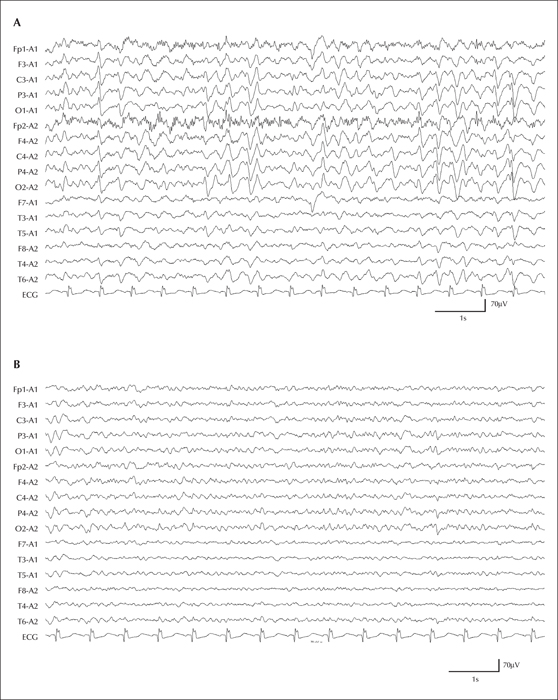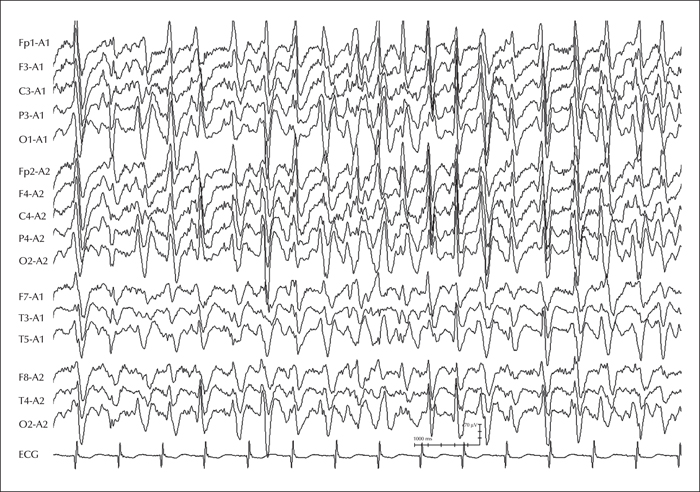Epileptic Disorders
MENUVaried responses to benzodiazepine treatment in cephalosporin-related generalized periodic discharges Volume 18, numéro 4, December 2016
- Mots-clés : generalized periodic discharge, cephalosporin, benzodiazepine, non-convulsive status epilepticus, encephalopathy
- DOI : 10.1684/epd.2016.0867
- Page(s) : 399-407
- Année de parution : 2016
Although benzodiazepines (BZDs) are used as the first-line treatment for status epilepticus, previous studies have shown inconsistent responses to BZDs in patients with cephalosporin-related non-convulsive status epilepticus. In this study, we investigated nine patients with cephalosporin-related impaired consciousness and their EEGs all showed generalized periodic discharges (GPDs). One of the patients received repetitive BZD injections without discontinuing cephalosporins, and neither his clinical symptoms nor GPDs on EEG responded to BZDs. Seven of the patients received BZDs after discontinuation of cephalosporins, but only two of them responded immediately to BZD administration. One of the patients did not receive BZDs or antiepileptic drugs, and this patient spontaneously recovered consciousness in one day after cephalosporins were discontinued. The changes in consciousness were reversible in all of the nine patients after cephalosporins were withdrawn. The administration of intravenous BZDs in cases with impairment of consciousness and GPDs secondary to cephalosporins may help in only a small number of patients. Cephalosporin withdrawal is ultimately mandatory in these patients.



